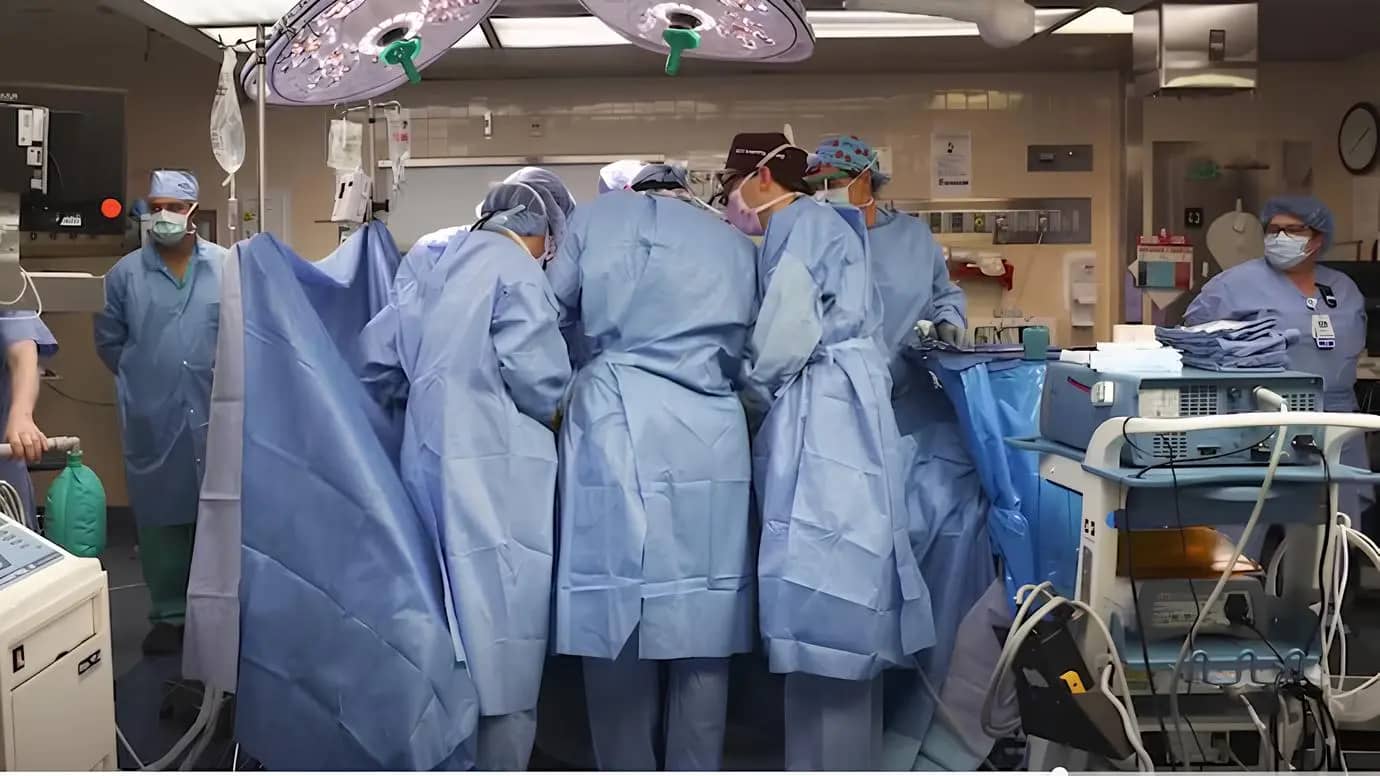In a groundbreaking medical achievement, surgeons in Boston have performed the world’s first pig-to-human kidney transplant, offering hope to patients with kidney failure. The recipient, Richard Slayman, is already showing signs of recovery after the historic surgery on March 16, with the new kidney producing urine and Mr. Slayman’s condition steadily improving.
The kidney transplant, conducted at Massachusetts General Hospital, is a significant milestone in xenotransplantation—the transplantation of organs from one species to another. With over 800,000 Americans suffering from kidney failure and limited access to human donor organs, this breakthrough procedure could revolutionize organ transplantation and save countless lives.
The genetically engineered pig kidney, developed by biotech firm eGenesis, underwent precise modifications to enhance compatibility and reduce the risk of rejection by the recipient’s immune system. By removing harmful genes and incorporating human genes, as well as deactivating potential viruses, eGenesis has pioneered a new era in organ transplantation.
Also Read : Google Partners with Apollo for AI-Powered Disease Detection
While previous attempts at pig-to-human transplants have shown promising results, this latest success represents a major leap forward in overcoming the immunological barriers associated with xenotransplantation. Dr. Robert Montgomery, director of the NYU Langone Transplant Institute, hailed the achievement as a significant step towards addressing the organ shortage crisis.
However, challenges remain, and long-term monitoring of Mr. Slayman’s health is crucial to assess the transplant’s efficacy and safety. Additionally, further research and clinical trials are needed to refine the techniques and medications involved in xenotransplantation.
Despite the inherent risks, the potential of pig-to-human organ transplants offers hope to millions of patients awaiting life-saving treatments. As medical science continues to advance, this pioneering procedure could herald a new era of organ transplantation, transforming the lives of patients worldwide.






